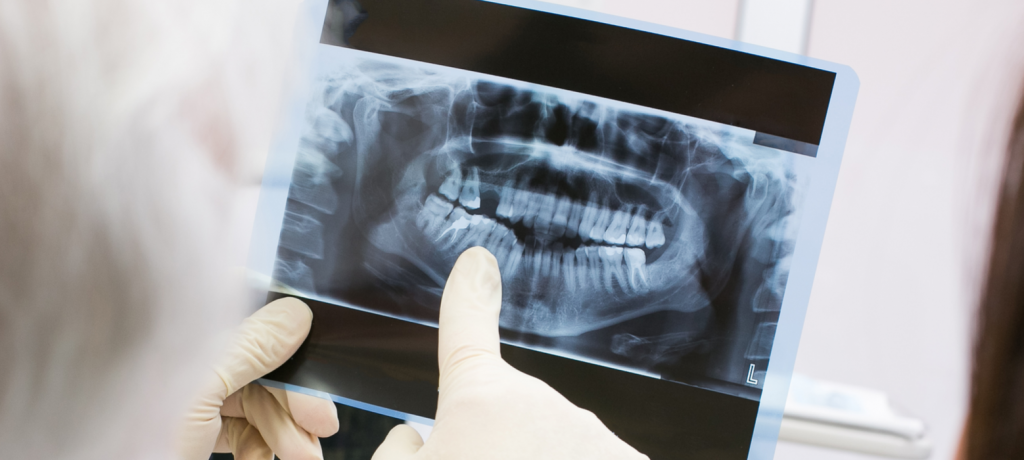Resource Library
Start Reading

When you think of dental surgery, called oral surgery, what do you think of? For many people, the first thing that comes to mind is wisdom tooth extraction, a common procedure for teens and young adults. However, that’s not the only type of procedure oral and maxillofacial surgeons perform.
Before we discuss the different types of dental surgery, let’s first consider what an oral surgeon is.
Oral and maxillofacial surgeons diagnose, treat, and perform surgery to resolve issues of trauma, injury, and defects to the jaws, teeth, head, neck, face, and mouth.
An oral surgeon bridges the gap between the medical world and the dental world, combining dental care with the expertise of surgical treatment. Besides having to earn a 4-year graduate degree in dentistry, oral surgeons also have to complete a 4-year hospital-based residency program in plastic surgery, emergency medicine, internal medicine, general surgery, anesthesiology, and otolaryngology.
 Dental surgery can be as routine as a wisdom tooth extraction or something more complex as a cleft lip and palate surgery. Below is a list of some ways oral surgeons bring relief to their patients.
Dental surgery can be as routine as a wisdom tooth extraction or something more complex as a cleft lip and palate surgery. Below is a list of some ways oral surgeons bring relief to their patients.
Millions of Americans are missing one or more teeth and because of that, they are turning to dental implants to give them a more permanent and natural-looking smile. Because dental implants require a post-surgical titanium post to be implanted into the jaw, it is important that an oral surgeon take on this job.
Believe it or not, many wisdom teeth can remain as long as they are healthy, cavity-free, and painless. The problem with wisdom teeth is when they become impacted or are unable to break through the gums from lack of space in the mouth. Impacted wisdom teeth can cause significant pain, damage other teeth, or cause infection if not removed. If you have impacted wisdom teeth, it’s best to have an oral surgeon remove them to avoid any other dental issues caused by impaction.
TMJ, or temporomandibular joint pain, is characterized by neck and jaw discomfort, headaches, jaw clicking, and pain when chewing. Depending on the severity of the TMJ, treatment can vary. There are some forms of non-surgical treatment an oral surgeon may recommend, such as short term anti-inflammatory pain medication, stress management counseling, or a bite plate therapy. If symptoms of TMJ continue after non-surgical treatment than the oral surgeon may suggest arthroscopic surgery to repair the damaged tissue.
A cleft lip/palate is the result of a birth defect that prohibits the nasal cavity and the mouth from growing together properly. This causes a gap or split in the roof of the mouth or the lip. An oral surgeon repairs the cleft lip by trimming the excess tissue and stitching the lip together. A cleft palate repair can take more than one surgery depending on the severity of the defect in the palate. With this type of repair, the surgeon will move tissue from the roof of the mouth to repair the palate and stitch it together.
These are just some of the ways that oral surgeons change lives by improving oral–and overall–health, in addition to the appearance of a smile.
So where do you find dental or oral surgery that is right for you? Whether you’re in need of a wisdom tooth extraction or you have other dental issues that may require the expertise of an oral surgeon, contact Penn Dental Family Practice today and schedule your initial consultation.